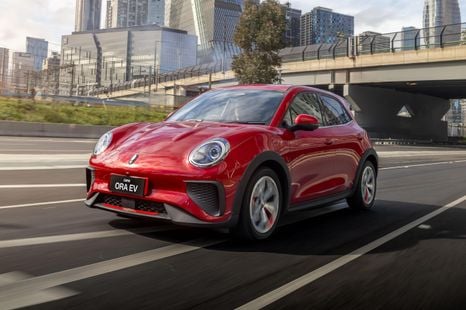

Damion Smy
Ex-Holden plant to stop building GWM Ora electric hatch for Australia
2 Days Ago
With distinctive styling and a luxurious interior, the Mazda 3 has plenty of showroom appeal but it's not as accommodating as it could be.
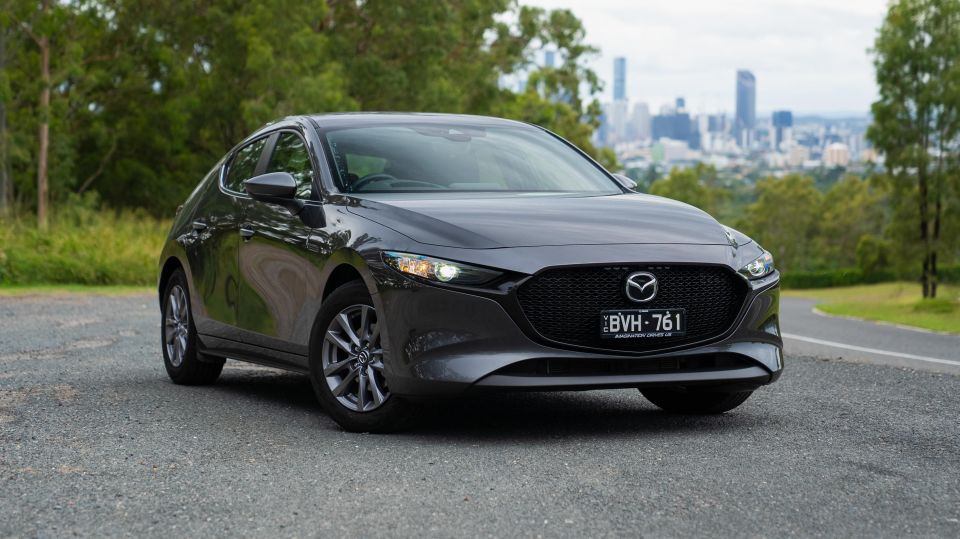
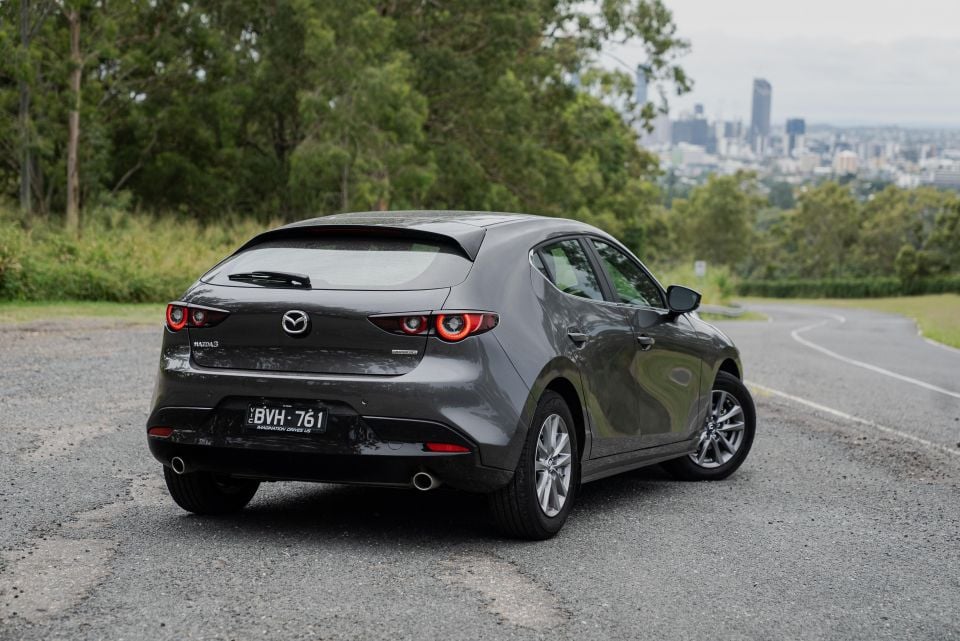

Quickly see how this car stacks up against its competition. Select any benchmark to see more details.
CarExpert brings reviews, research tools and trusted buying support together, guiding you from research to delivery with confidence.
Small car sales are declining as buyers shift to SUVs, including Mazda’s own hot-selling CX-30, and the Mazda 3 has been hit harder than some.
In 2016, Australians bought 224,450 small cars. Last year, they bought 109,064 – a 51 per cent decline over five years. Mazda 3 sales have outpaced that decline, slumping 60 per cent in the same period.
Why are Australians abandoning what was once one of our favourite cars?

The Mazda 3 offers one of the widest ranges of models in its segment, and its 2019 redesign brought with it more distinctive styling and a more upscale interior.
Perhaps the hatchback is a little too distinctive. Detractors say it looks like an egg or a potato, while fans love it. Its polarising styling invites criticism in a way the more subtle, elegant sedan doesn’t.
Mazda has further distinguished the two body styles with their exterior trim: the hatchback features a blacked-out grille and the sedan features chrome. But there’s an equally wide range of both hatchbacks and sedans on offer, so there’s a Mazda 3 for almost every taste and budget.
In Australia, Mazda offers its small car with four different powertrains, two body styles, two transmissions, and six different trim levels.
The G20 Pure is easy to locate within that model range, however. It’s right at the bottom, though our tester included the optional six-speed automatic. That increases the price by $1000 to $27,540 before on-road costs.
As with all other trim levels, the G20 Pure is available in hatch or sedan body styles for the same price. Metallic and mica shades are no-cost options apart from Machine Grey, Soul Red Crystal and Polymetal Grey metallic, which are $595 extra.
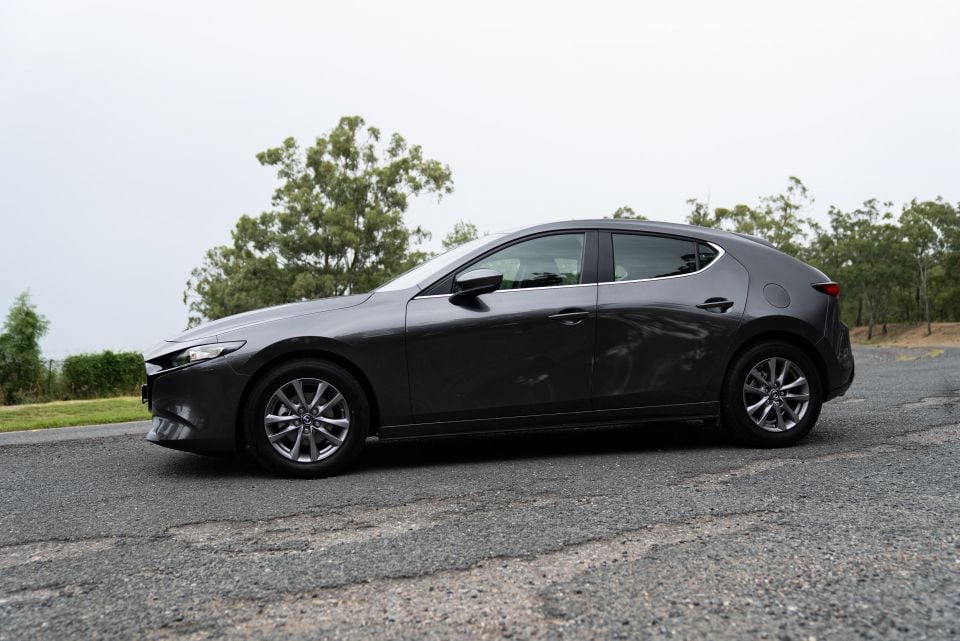
All up, our tester had a drive-away price, based on a Sydney postcode, of $31,266.
Its price puts it up against the following rivals:
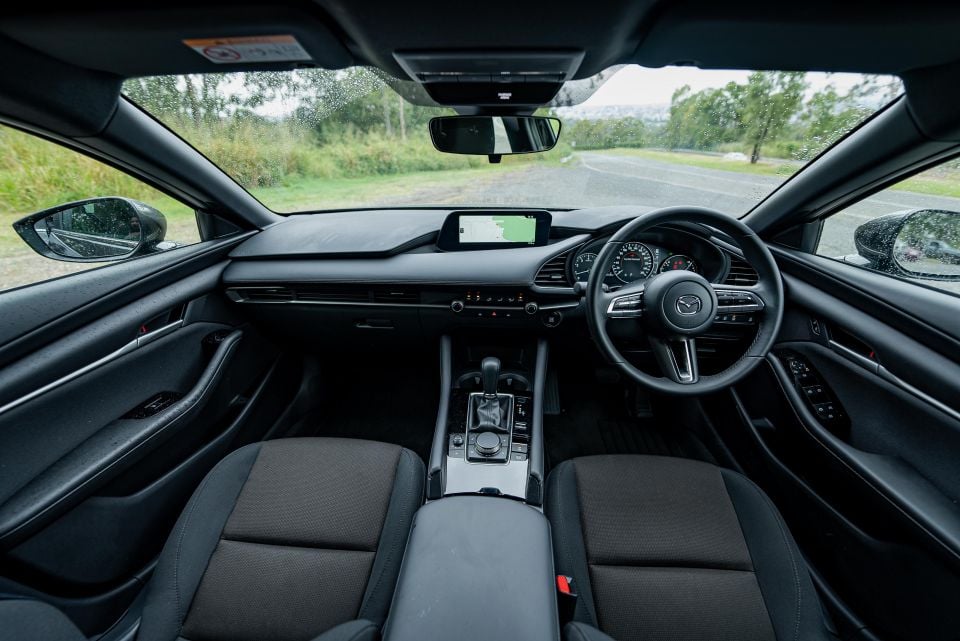
Buy your new car without the stress. It's fast, simple and completely free.

Great service from Travis and team, second time I have used this business would not hesitate to recommend them to anyone
Craig C.
Purchased a Ford Ranger in Sunshine Coast, QLD
CarExpert helped Craig save thousands on his Ford Ranger, now let us save you on your next new car.
Get your BEST priceThe Mazda 3’s interior is simultaneously its greatest strength and its greatest weakness.
The front half of the cabin is truly exceptional for this segment, putting all its rivals to shame and frankly posing a threat to similarly-sized luxury brand models in presentation. And this is the base model.
Everywhere you look there’s attractive, soft-touch plastic or leatherette trim, even in areas where some rivals won’t bother – the sides of the centre console, for instance, or at the base of the infotainment screen.
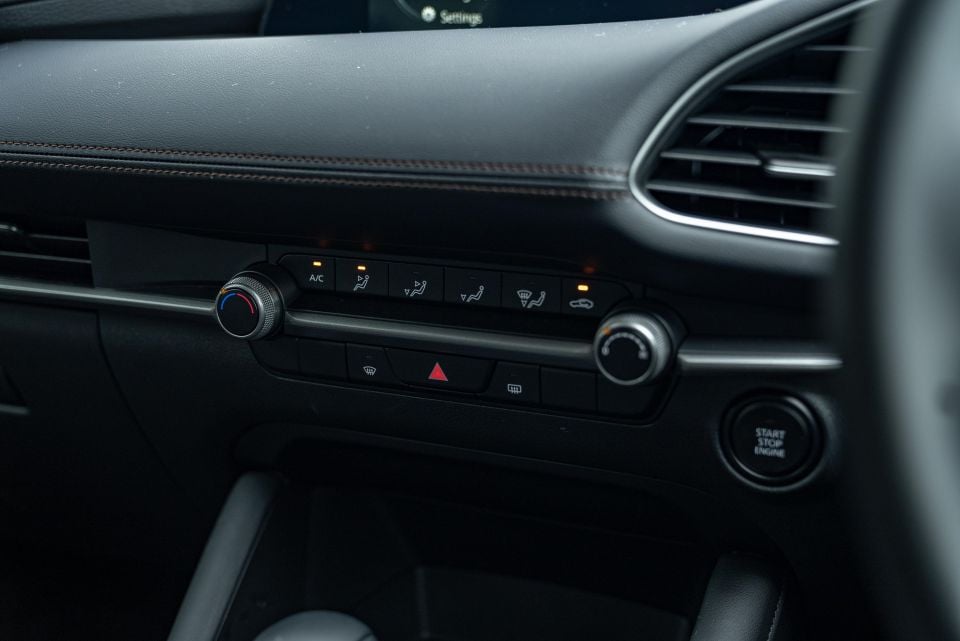
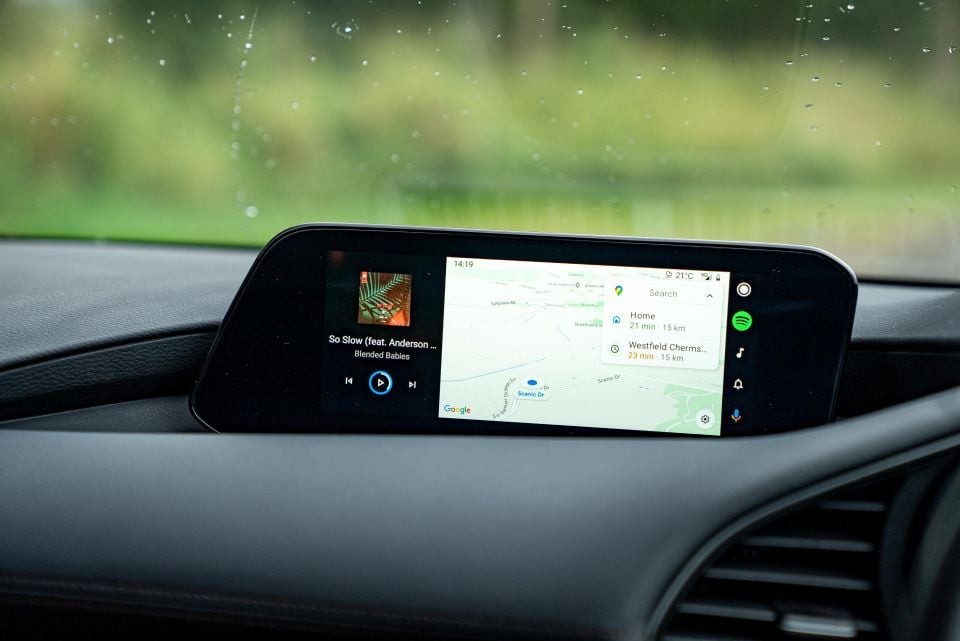
Only the very lowest reaches of the dash and doors feature the hard stuff, and the leatherette trim on the dash is remarkably soft.
Attractive stitching details abound, including along the front of the dash and along the sides of the centre console.
The dashboard design is refreshingly minimalist without appearing spartan. The centre stack consists solely of climate controls, but they’re actually physical knobs and buttons that are attractive and tactile.
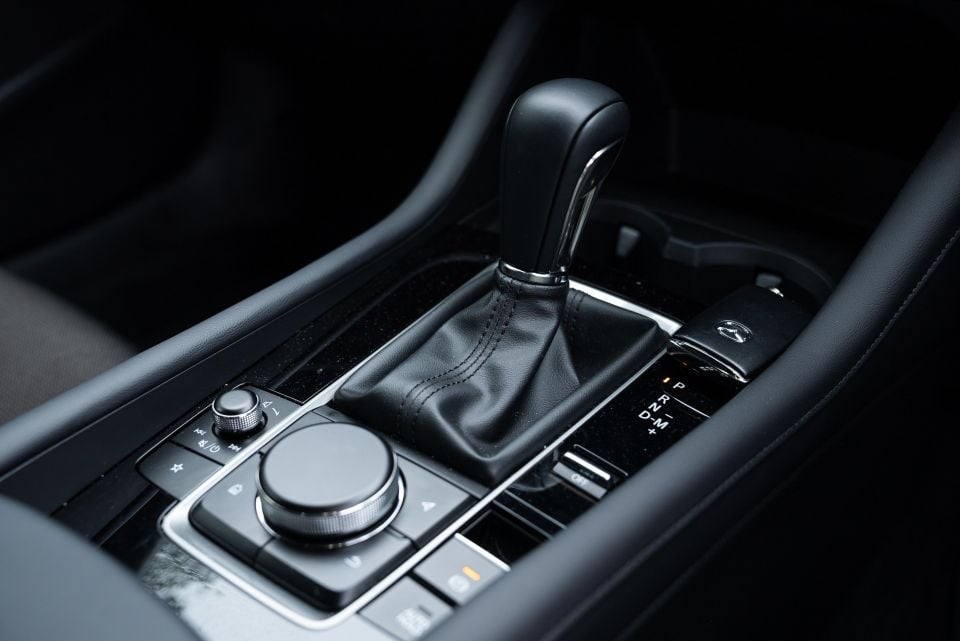
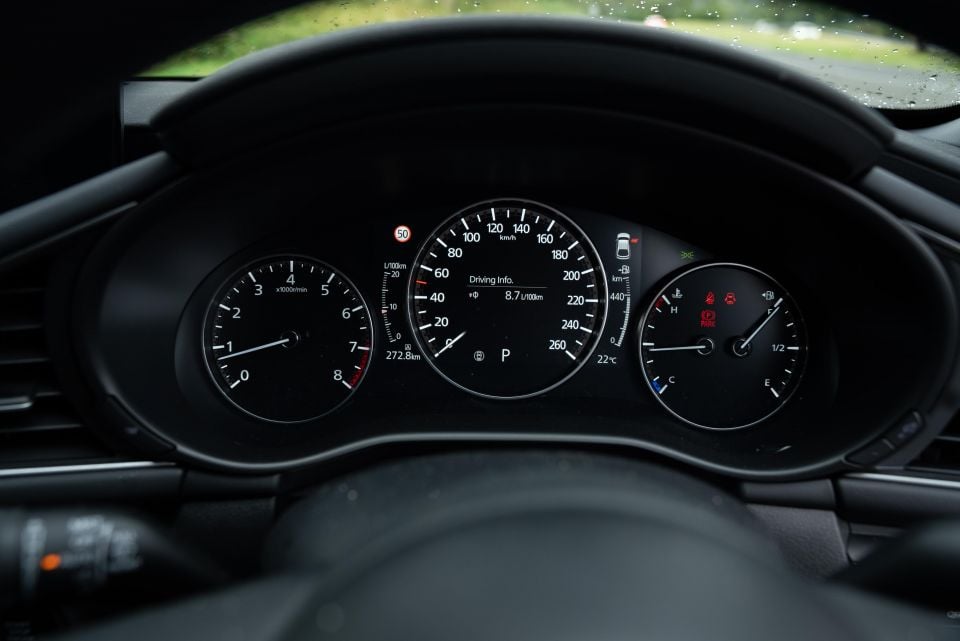
Below the stack sits a shelf for your phone, plus a pair of cupholders. The centre console features gloss black trim, but it’s attractively implemented.
Everything on the centre console is neatly laid-out, and the rotary dial for the infotainment system is yet another item in this cabin that’s nicely damped and feels good to use.
That’s fortunate as the dial is the only way to operate the infotainment system, short of using voice prompts. In the shift from MZD Connect to Mazda Connect, the Japanese company has ditched touch inputs – something it seems to be reversing with the upcoming CX-60.
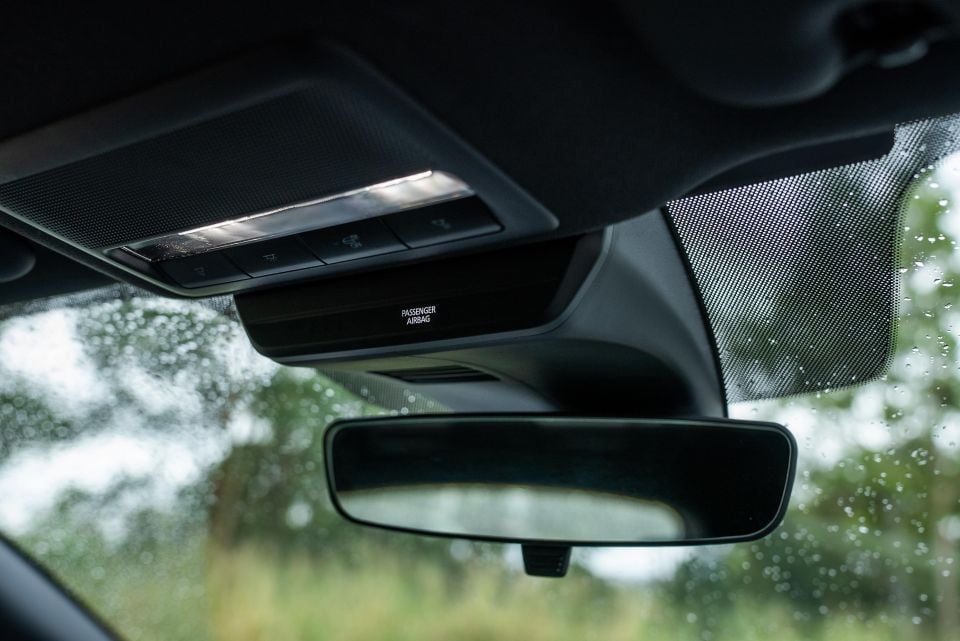
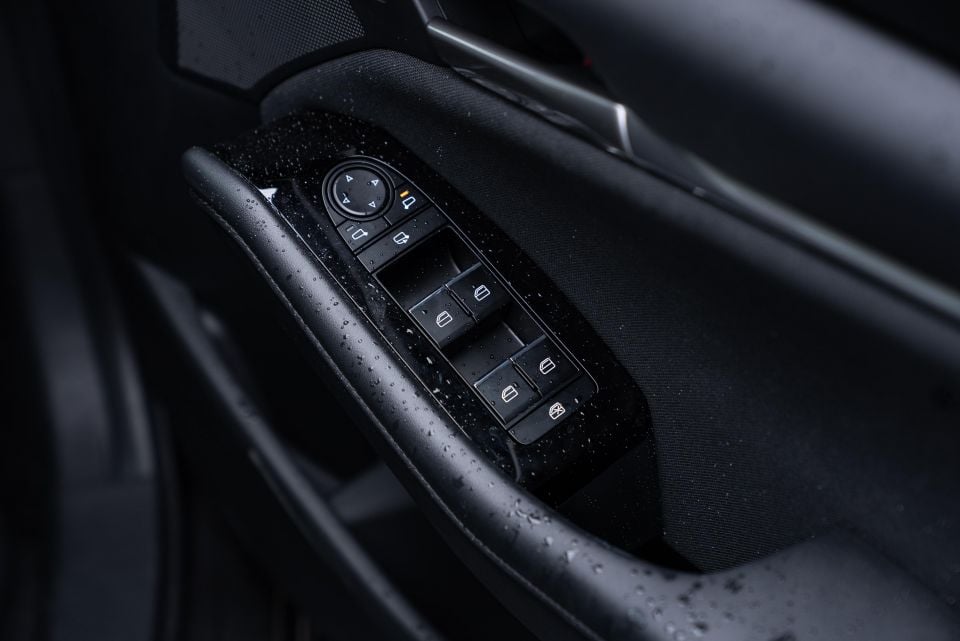
While the Mazda Connect interface is considerably more attractive than the old system and is slick to operate, trying to use Android Auto or Apple CarPlay with a rotary dial is tedious.
You can tell this is a latest-generation Mazda product by its attractive steering wheel, which features classy, tactile switchgear. Another sign of a newer Mazda are the separate lock/unlock buttons on the doors.
Mazda has sweated the details. For example, the overhead lighting is LED, there’s soft, elegant white backlighting for the switchgear, and any button blanks are applied discreetly.
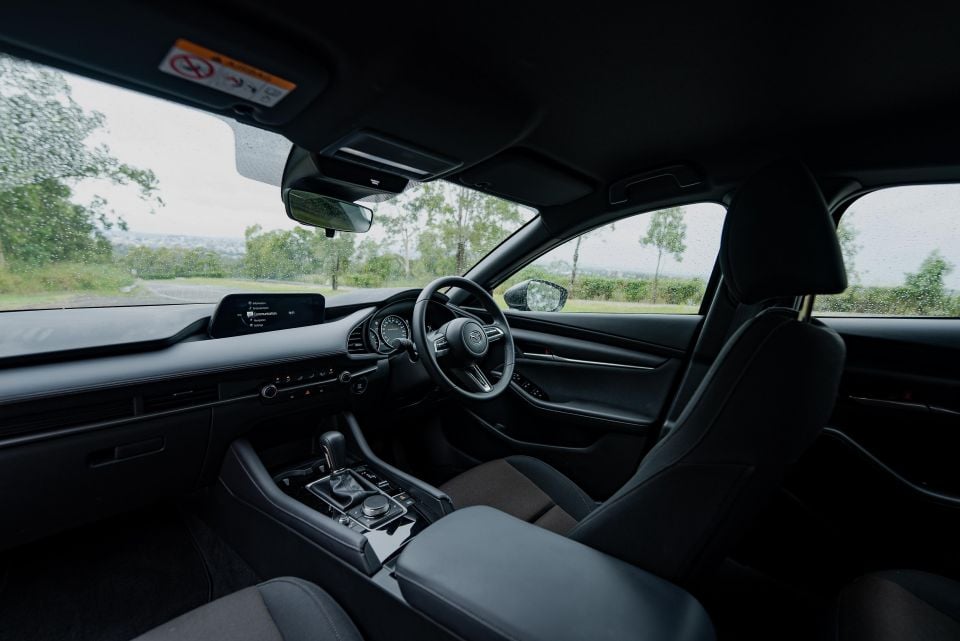
There’s no full digital instrument cluster, but the cluster balances analogue and digital elements in a manner that’s attractive and legible, and shouldn’t visually date quickly.
There are no felt-lined door pockets like a Golf, though the bottle holders will still fit a 1L bottle.
Mazda seems to love combining black and brown trim, but while wearing brown shoes with a black belt is a fashion faux pas, the combination works in the 3’s cabin. The brown seat inserts help add some warmth to the cabin and have a subtle zigzag pattern, and the cloth upholstery looks and feels nice.
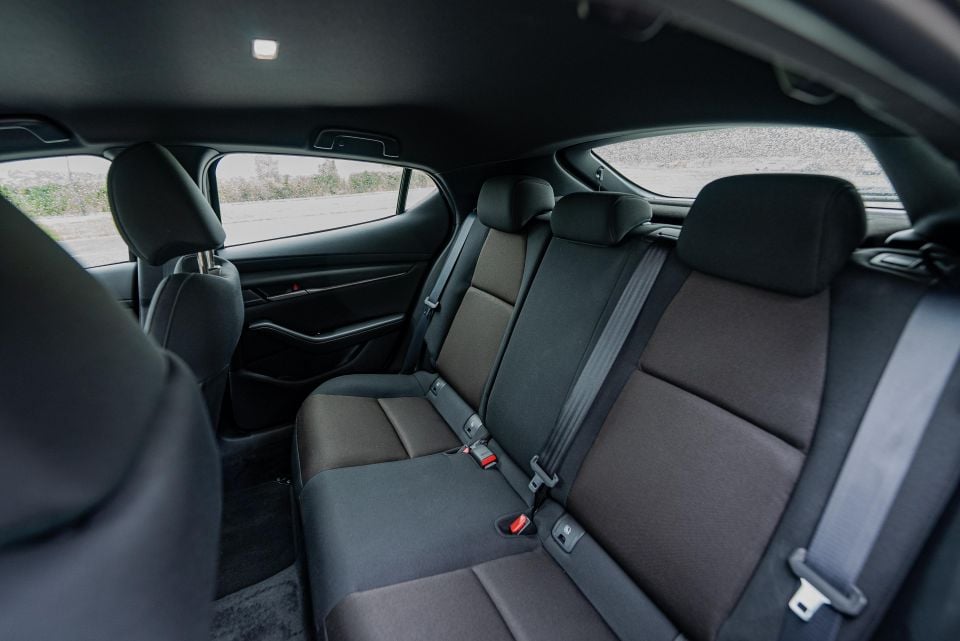
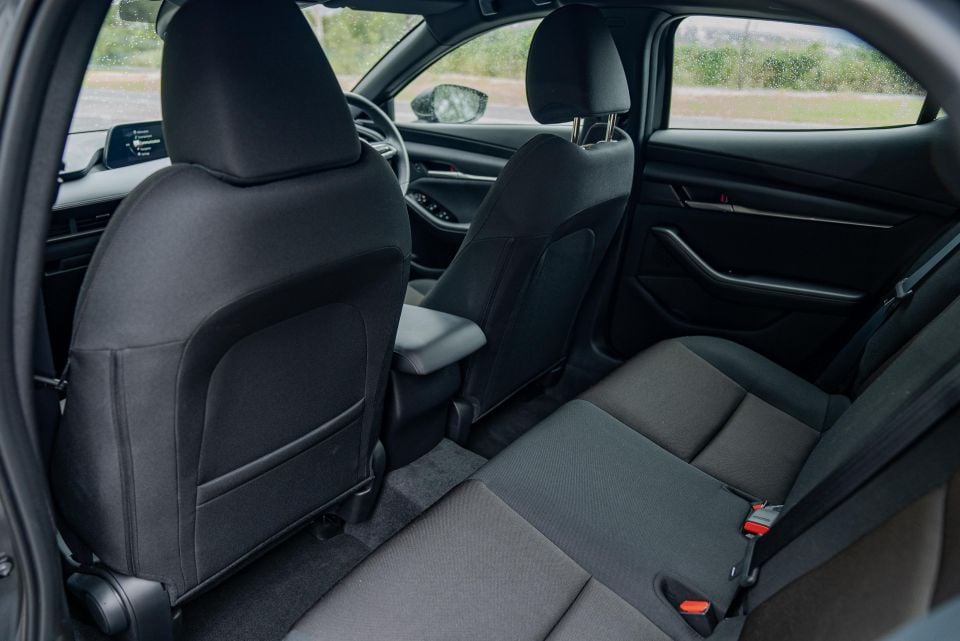
Turn around, and you’ll notice the disappointing visibility caused by the rising belt line and the thick C-pillars. Even the B-pillars seem inordinately thick.
Step into the back, and it’s decidedly gloomy. Kudos to Mazda for continuing the use of soft-touch plastics to the rear doors, but while that’s a quality touch it doesn’t mitigate the claustrophobic feel of the cabin.
It feels confining due to the rising belt line and thick C-pillars, and yet there’s actually a decent amount of space. I’m 180cm tall, and I can comfortably sit behind my own seating position. There’s sufficient headroom, while the front seatbacks are scooped out to accommodate your knees.
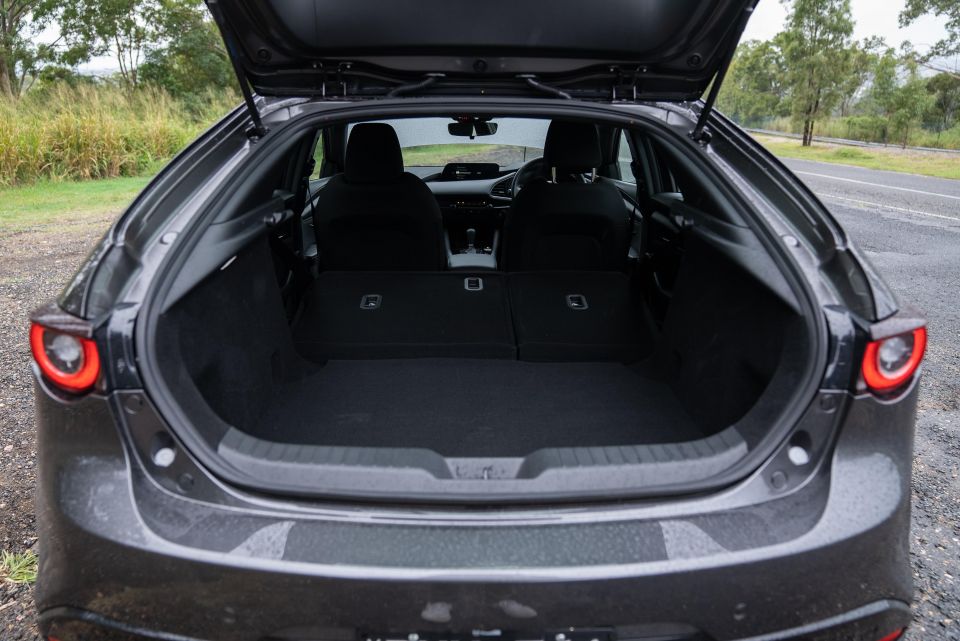
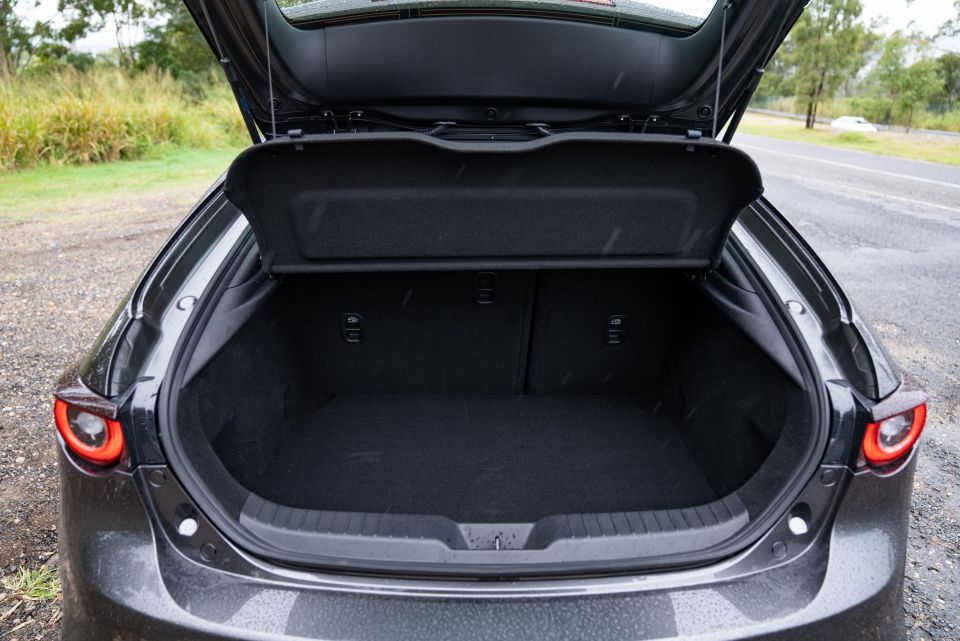
Amenities are limited to a single map pocket on the front passenger seatback, plus a bottle holder in each door. There are no vents and no fold-down armrest, while there’s a raised driveline hump that eats into the centre-seat occupant’s space.
The Mazda 3 hatch has a claimed 295L of boot space, and under the boot floor sits a space-saver wheel.
While that’s better than the Corolla hatch’s pitiful 217L (333L in models without a spare wheel), it’s worse than the Golf (374L), i30 (395L) and Cerato (428L).
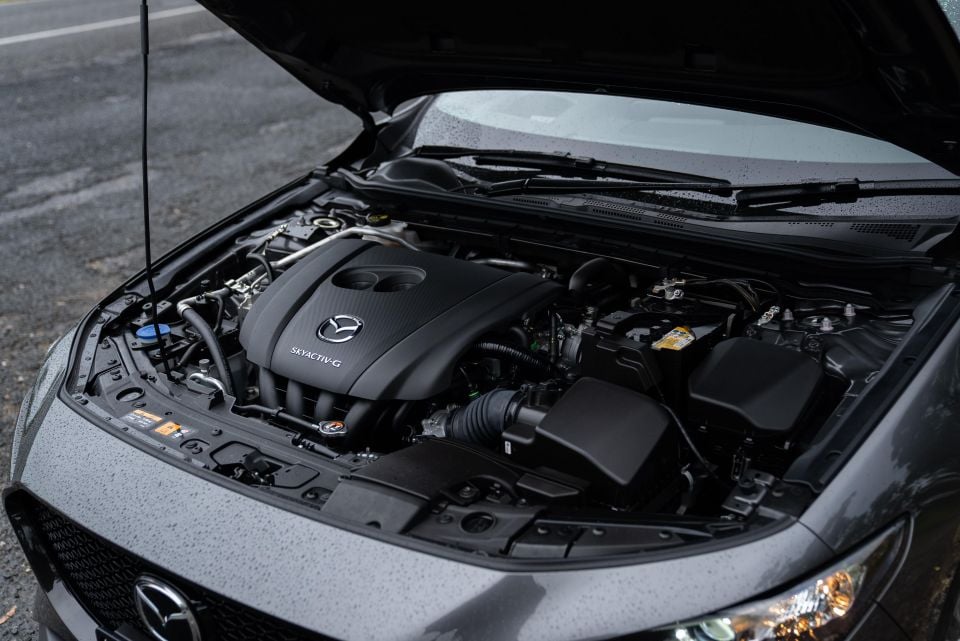
All Mazda 3 G20 models are fitted with a naturally-aspirated 2.0-litre four-cylinder petrol engine with 114kW of power and 200Nm of torque, mated with either a six-speed manual or six-speed automatic transmission.
If you want more power, there’s a 138kW/252Nm 2.5-litre four-cylinder engine but you’ll need to step up to the Evolve SP trim level to get it, and that’s another $4000 or so.
Over a loop consisting of inner-city, suburban and highway driving, we averaged 7.3L/100km. Over the course of a week, this increased to 8.8L/100km.
Mazda claims a combined cycle fuel consumption of 6.2L/100km in the G20 Pure hatch (6.1L in the sedan). It requires only 91RON regular unleaded fuel.
That’s thriftier than the Impreza (6.6L/100km) and Cerato and i30 hatches (7.4L/100km), though it’s bested by the Scala (5.5L/100km), Corolla (6.0L/100km) and, unsurprisingly, the Corolla hybrid (a thrifty 4.2L/100km).
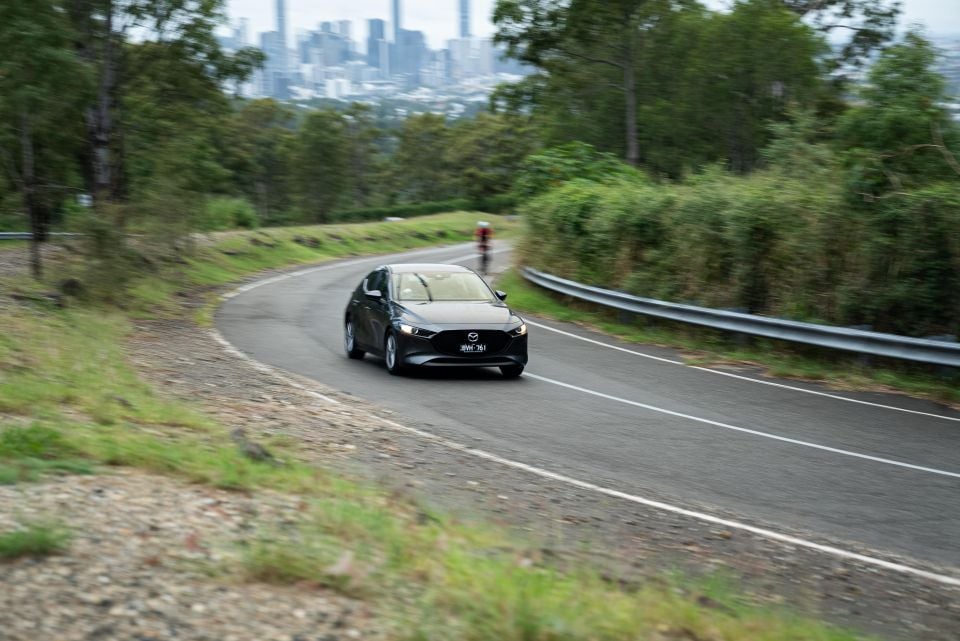
The Mazda 3’s poised dynamics make a compelling case for stumping up the extra money for the more powerful 2.5-litre.
It’s not that the 2.0-litre is underpowered, per se. It’s decently responsive, whether you’re zipping around town or overtaking on the highway. However, it lacks a certain spark, and the car would certainly be more engaging with some more power under the bonnet.
The six-speed automatic shifts smoothly, if without the rapid-fire shifts of a Scala’s dual-clutch. There are no paddle shifters, which means you need to move the shifter up and down to manually go through the gears. The standard six-speed manual would allow you to make the most of the 2.0-litre’s modest outputs.
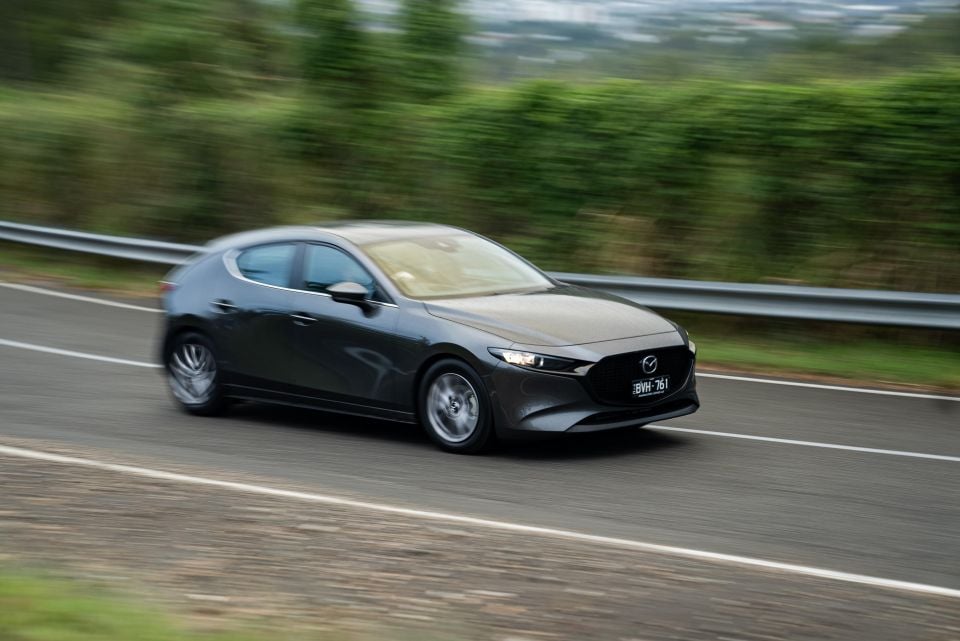
The cabin is quite well insulated, and though the engine note is subdued it has a nice sound to it for the most part. Push it harder and it does moan a little bit, but this is a better soundtrack than that of an i30 or Cerato.
The stop/start system is smooth. It cuts the engine without shaking the car, and it isn’t as aggressively quick to do so as, for example, the stop/start systems in Volkswagen Group products. We also like the presence of both an electronic parking brake and auto hold on a base model small hatchback.
It wouldn’t make sense for such a plush cabin to be noisy, and fortunately Mazda’s engineers have ensured a high level of hush inside the 3. Other than a bit of tyre roar on coarse-chip roads and highways, the cabin is about as serene as you can get in this segment with little in the way of wind noise.
It’s an enjoyable steer, too. Turn-in is sharp, and the steering is weighty, direct and communicative.
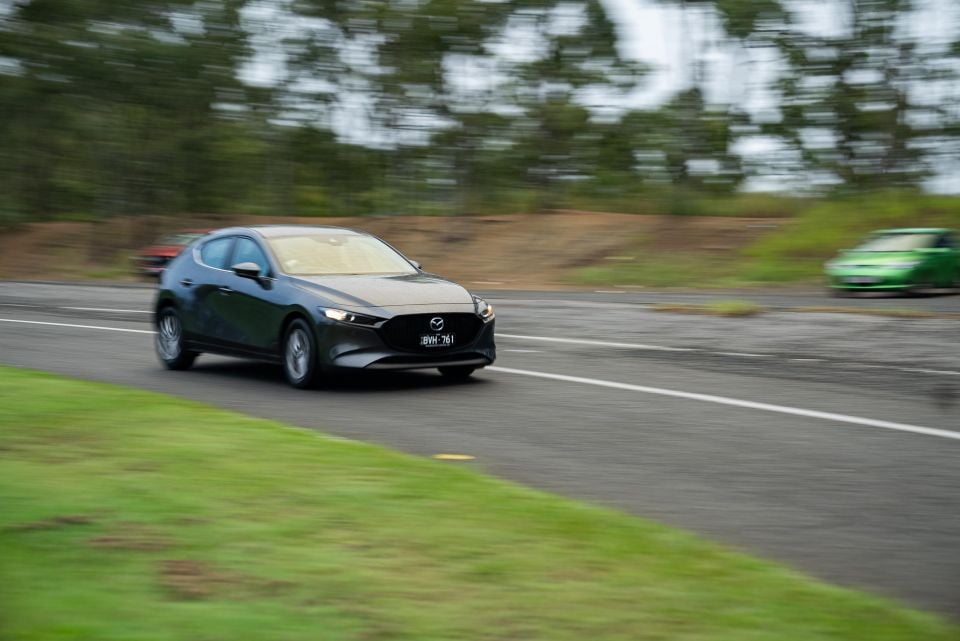
CarExpert brings reviews, research tools and trusted buying support together, guiding you from research to delivery with confidence.
Take it on a winding road and you’ll find the Mazda 3 has minimal body roll, and it feels nicely tied down through corners. The ingredients for a genuinely enjoyable small car are here, it just needs a little bit more power to really come together. How we wish the turbocharged engine available in North America would come here…
Ride quality is a bit of a mixed bag. It feels a little fidgety at low speeds, even on smoother surfaces, and some road elements – like recessed manhole covers – don’t get absorbed as well as I’d hoped.
Over some larger bumps and ruts, the rear does clomp a bit. We can’t ascribe all the blame to the simpler torsion-beam rear suspension introduced with the current-generation model, as the front suspension doesn’t completely smooth out these imperfections, either.
The ride isn’t objectionable, mind you, but in a car that’s otherwise surprisingly quiet and luxurious for something in this segment, it stands out.
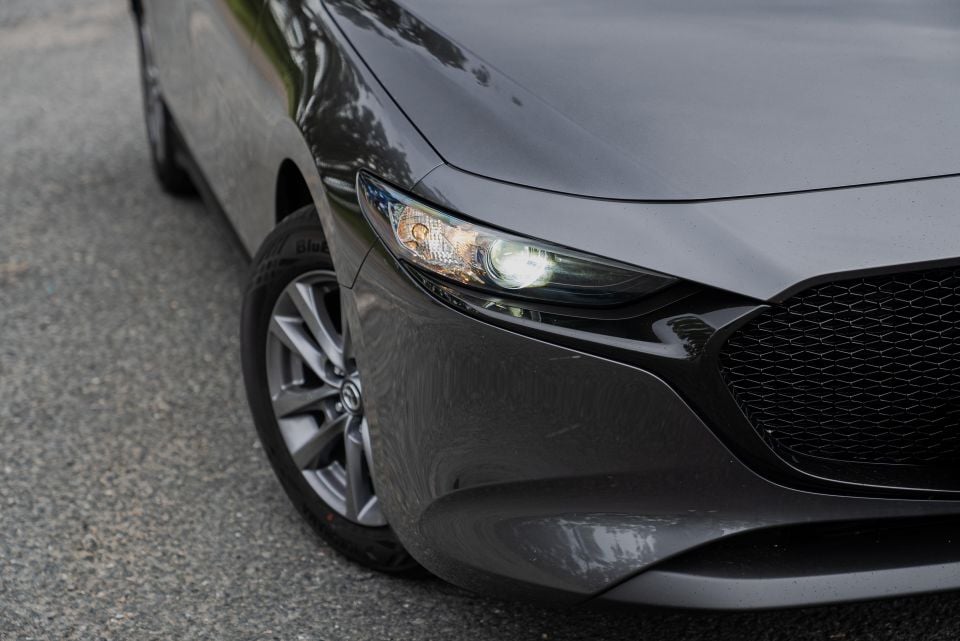
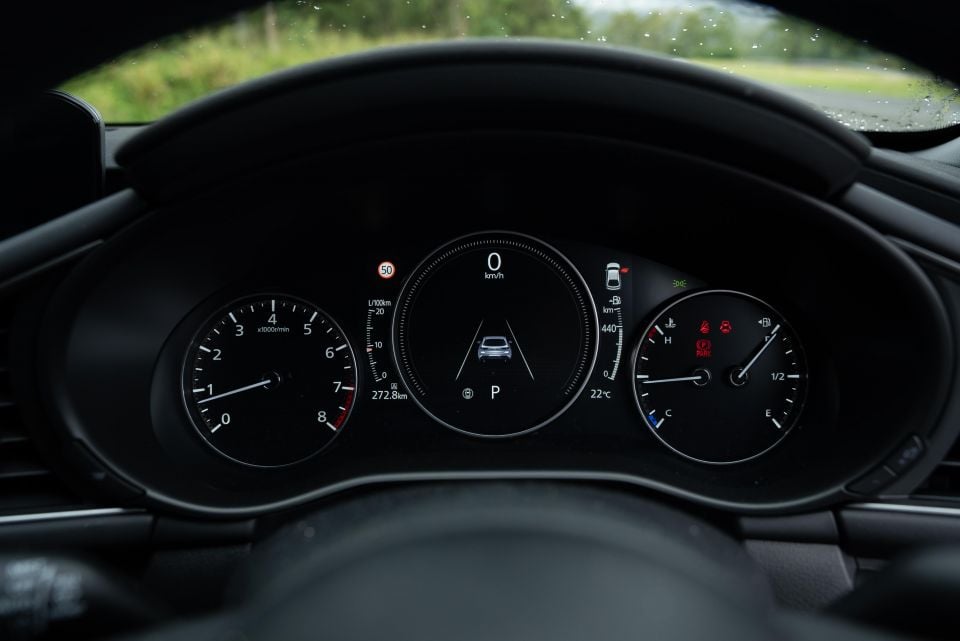
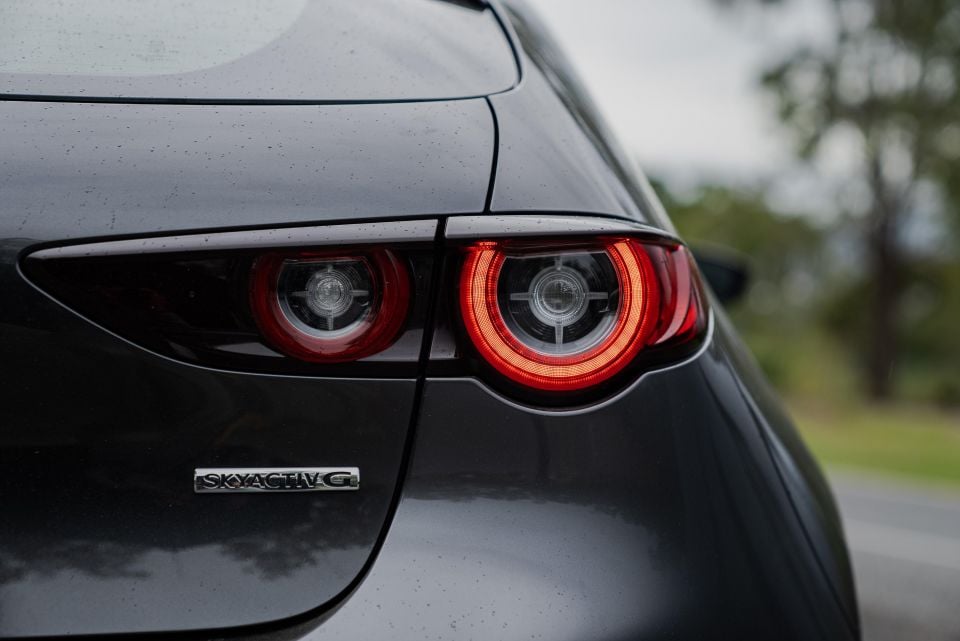
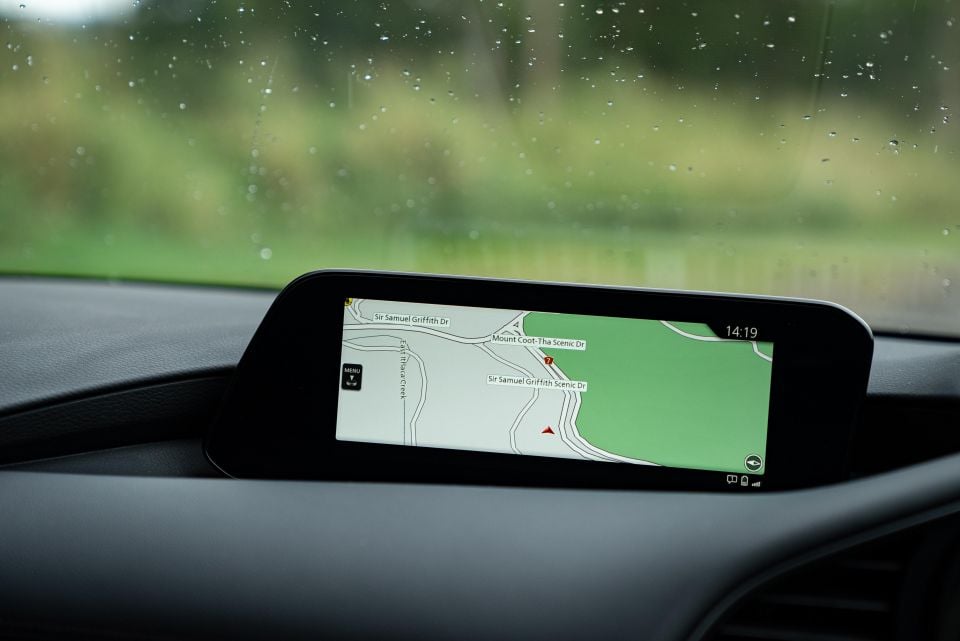
The G20 Pure comes with the following standard features:
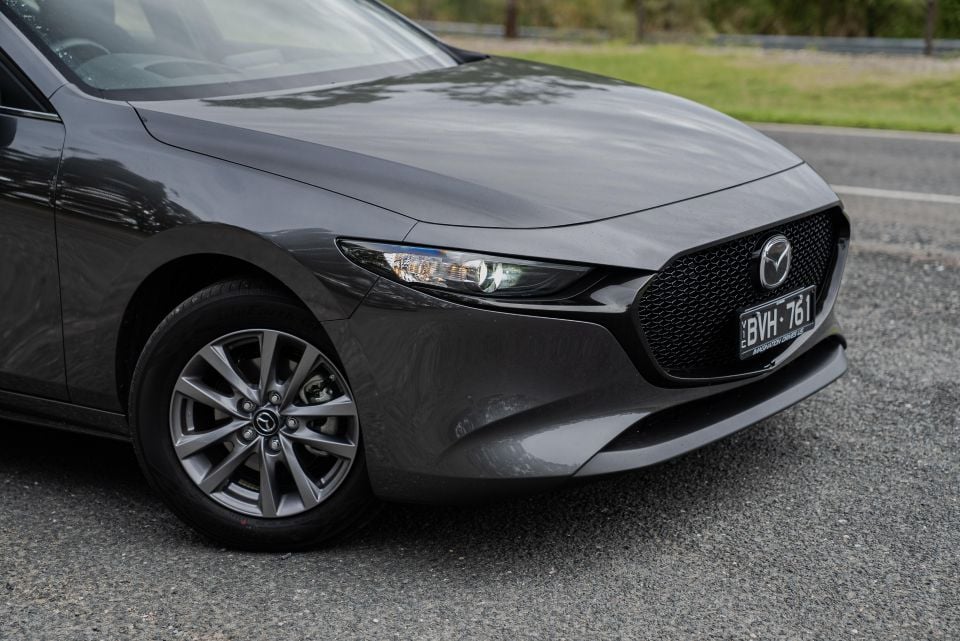
Mazda copped some flak for increasing the base price of the current generation 3 but the level of equipment on offer, particularly safety equipment (more on that later), is impressive. The company also added a leather-wrapped steering wheel and shifter for 2022.
Kudos to Mazda for making LED headlights standard, unlike the Impreza, i30 and Cerato, but why on earth did they pair these with halogen daytime running lights? The set-up looks awkward and cheap.
Another strange mismatch is the presence of keyless start but not keyless entry.
A Corolla SX is slightly better equipped, as it offers dual-zone climate control, LED daytime running lights, keyless entry and a wireless phone charger. It’s perhaps surprising these two Japanese hatchbacks offer more equipment at an almost identical price to their two Korean rivals, given Hyundai and Kia’s history as more value-oriented challenger brands.
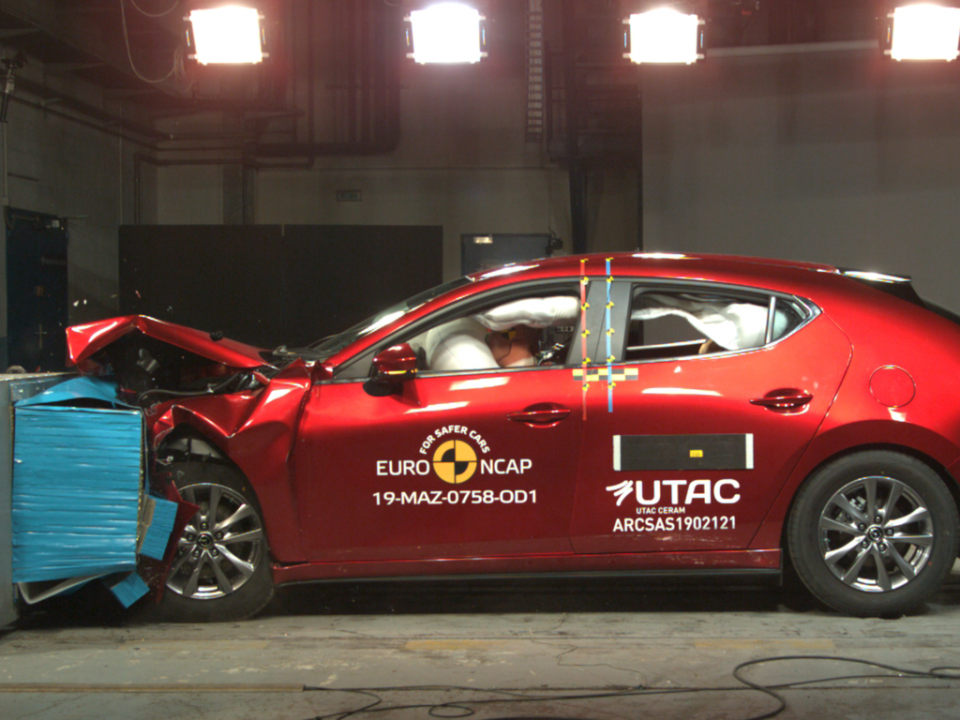
The Mazda 3 has an ANCAP safety rating of five stars, with scores of 98 per cent in adult occupant protection, 89 per cent in child occupant protection, 81 per cent in vulnerable road user protection, and 76 per cent in safety assist.
All 2022 Mazda 3 models come standard with the following safety features:
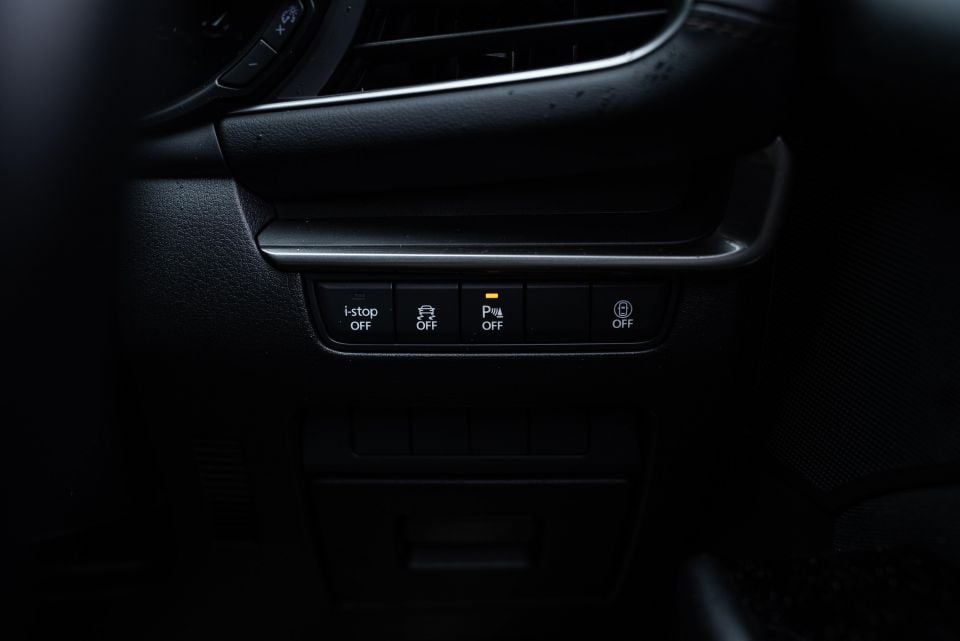
That aligns the base G20 Pure with the mid-range Corolla SX, as well as the Cerato Sport when equipped with its optional Safety Pack.
An optional $1500 Vision Technology package adds various features, most of which can’t be found on similarly-priced rivals. These include:
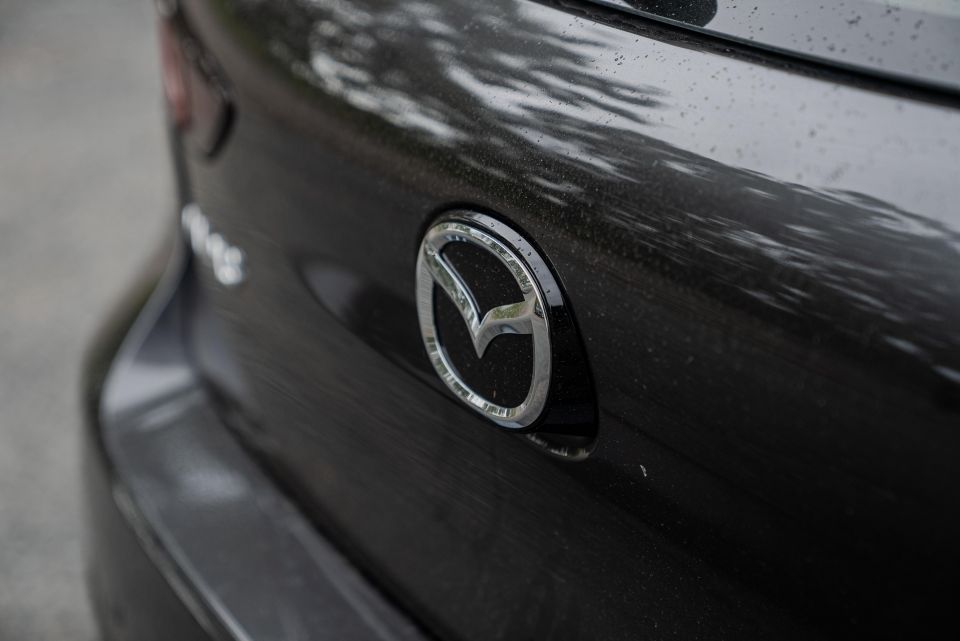
In addition to a five-year, unlimited-kilometre warranty, Mazda offers five years of capped-price servicing.
The first five services are capped at $316, $361, $316, $361 and $316. That’s not quite as cheap as the Scala or i30, which can both be had with five-year service packs costing around $1500, nor is it as cheap as the Corolla ($205 each, or $1025 over five years).
It is, however, cheaper than the Cerato ($1999 over five years).
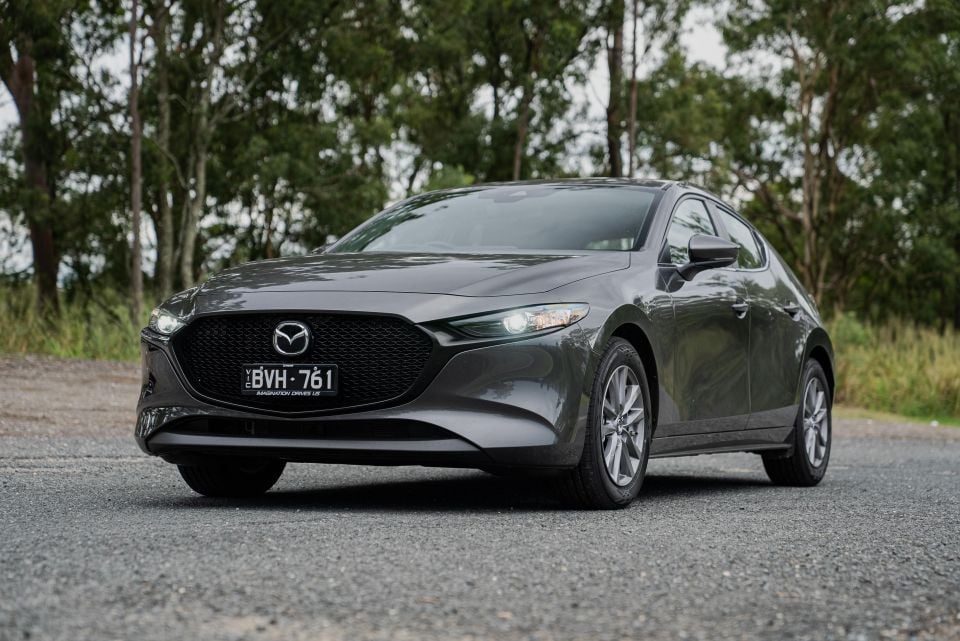
The days of $19,990 drive-away small cars are long gone, but you may be surprised just how much standard kit you can get in a base model Mazda 3 today.
The level of safety equipment fitted as standard is truly impressive and puts some more expensive cars to shame, while there’s even more available as an option.
Even the number of standard convenience features is impressive, and the addition of a leather-wrapped wheel for the 2022 G20 Pure banishes the last cheap item from the Mazda 3’s interior.
Said interior is beautifully appointed for a car at this price point. The lack of touchscreen functionality is a bit frustrating, but otherwise the Mazda 3’s interior has a premium look and feel that transcends its price point.
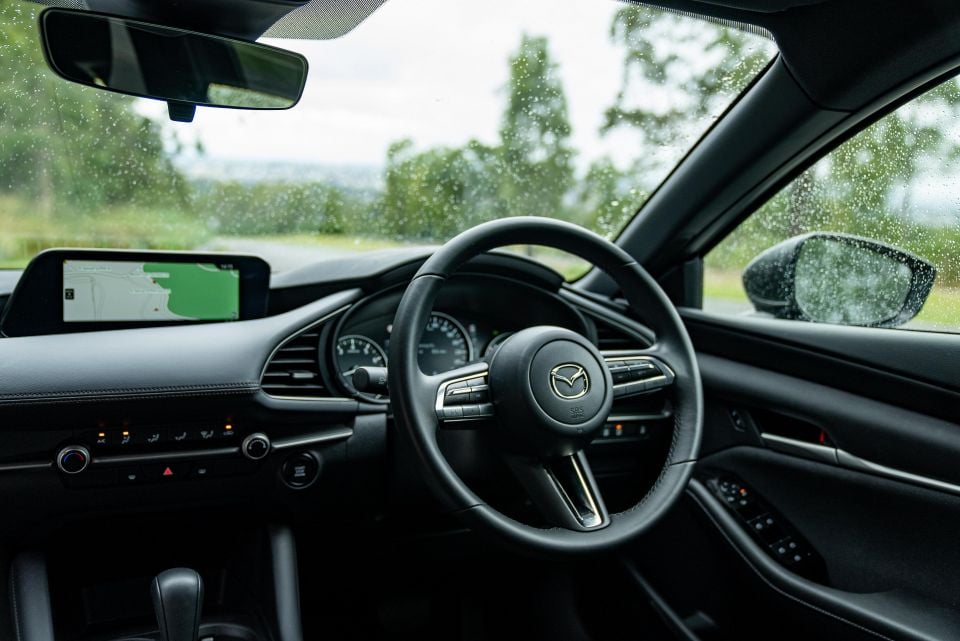
Like Toyota with the current Corolla hatch, however, Mazda has de-emphasised passenger and cargo space in the pursuit of style. It’s a disappointing trade-off. Boot space isn’t quite as bad as the Corolla hatch, but the back seat is gloomier.
Where Toyota has stuck with independent rear suspension, arguably to the detriment of luggage space, Mazda has moved to a cheaper torsion-beam set-up. The Mazda’s generally high level of refinement is let down ever so slightly by ride quality that could be slightly more resolved.
Overall, however, this is a slick small car. We’d steer you to the less polarising Mazda 3 sedan, however, with its more inviting cabin.
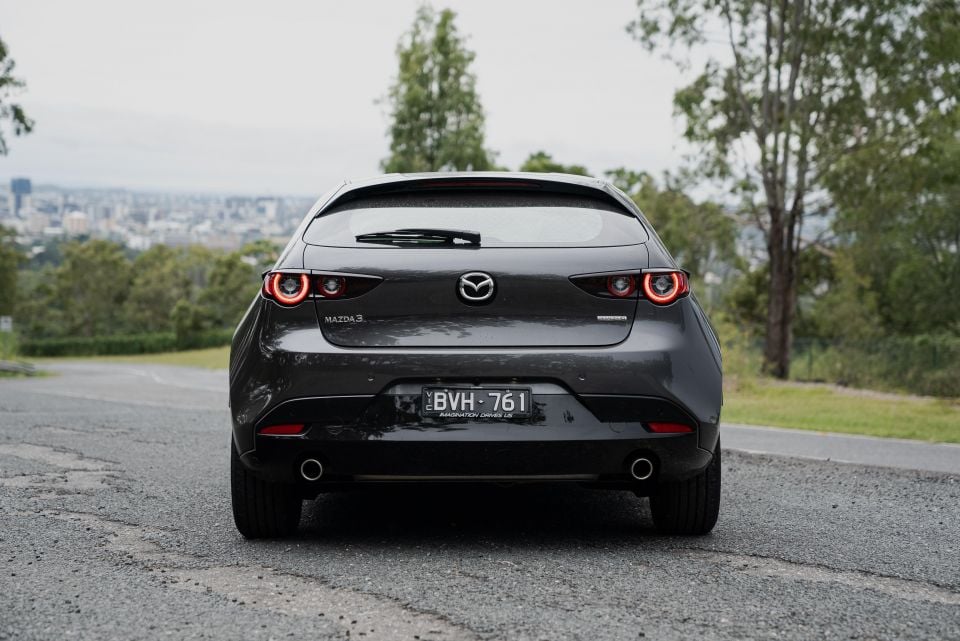
Click an image to view the full gallery.
MORE: Everything Mazda 3
CarExpert brings reviews, research tools and trusted buying support together, guiding you from research to delivery with confidence.
Mazda 3
Mazda 3 Sales rolling 12-months#
*Based on VFACTS and EVC data
Looking for complete Mazda 3 price history?
Our Mazda 3 Pricing Page shows exactly how prices have changed over time.
2025
$31,310
2025
$33,110
2025
$33,310
2025
$35,110
2025
$37,110
2025
$37,110
2025
$40,110
2025
$43,310
William Stopford is an automotive journalist with a passion for mainstream cars, automotive history and overseas auto markets.
Add CarExpert as a Preferred Source on Google so your search results prioritise writing by actual experts, not AI.


Damion Smy
2 Days Ago
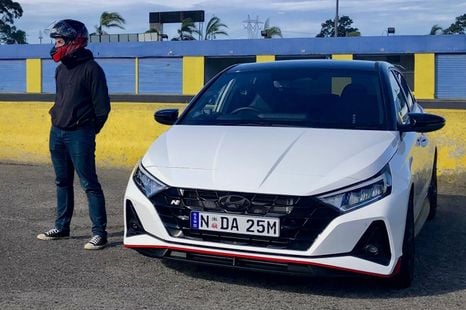

Max Davies
3 Days Ago
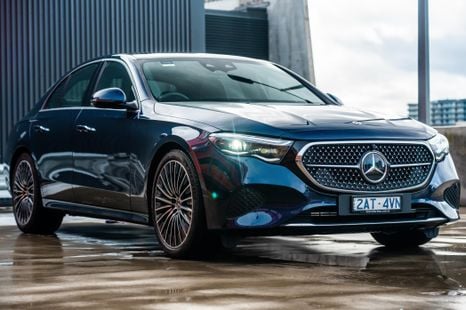

Josh Nevett
3 Days Ago
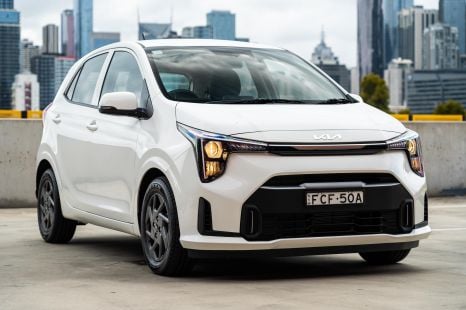

Josh Nevett
4 Days Ago
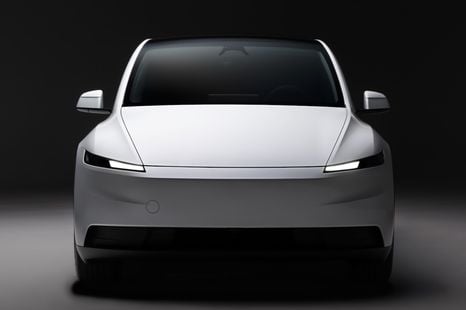

Ben Zachariah
7 Days Ago
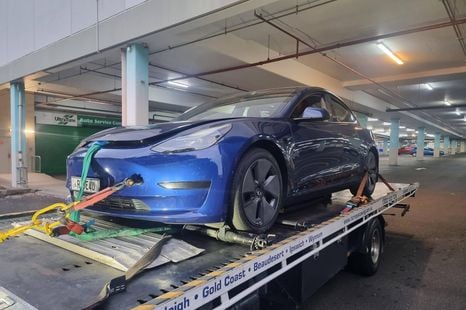

CarExpert
8 Days Ago
Add CarExpert as a Preferred Source on Google so your search results prioritise writing by actual experts, not AI.
* Average savings based on recent CarExpert customer transactions. Actual savings will vary depending on vehicle make and model, location, stock availability, and other factors.
† Displayed prices exclude on-road costs such as delivery charges, registration fees, number plates, insurance and applicable road taxes. These prices are subject to change without notice and may not reflect current market pricing or dealer offers.
 Automotive Vehicle Spec Data & 4K images Powered by JATO Dynamics Ltd
Automotive Vehicle Spec Data & 4K images Powered by JATO Dynamics Ltd